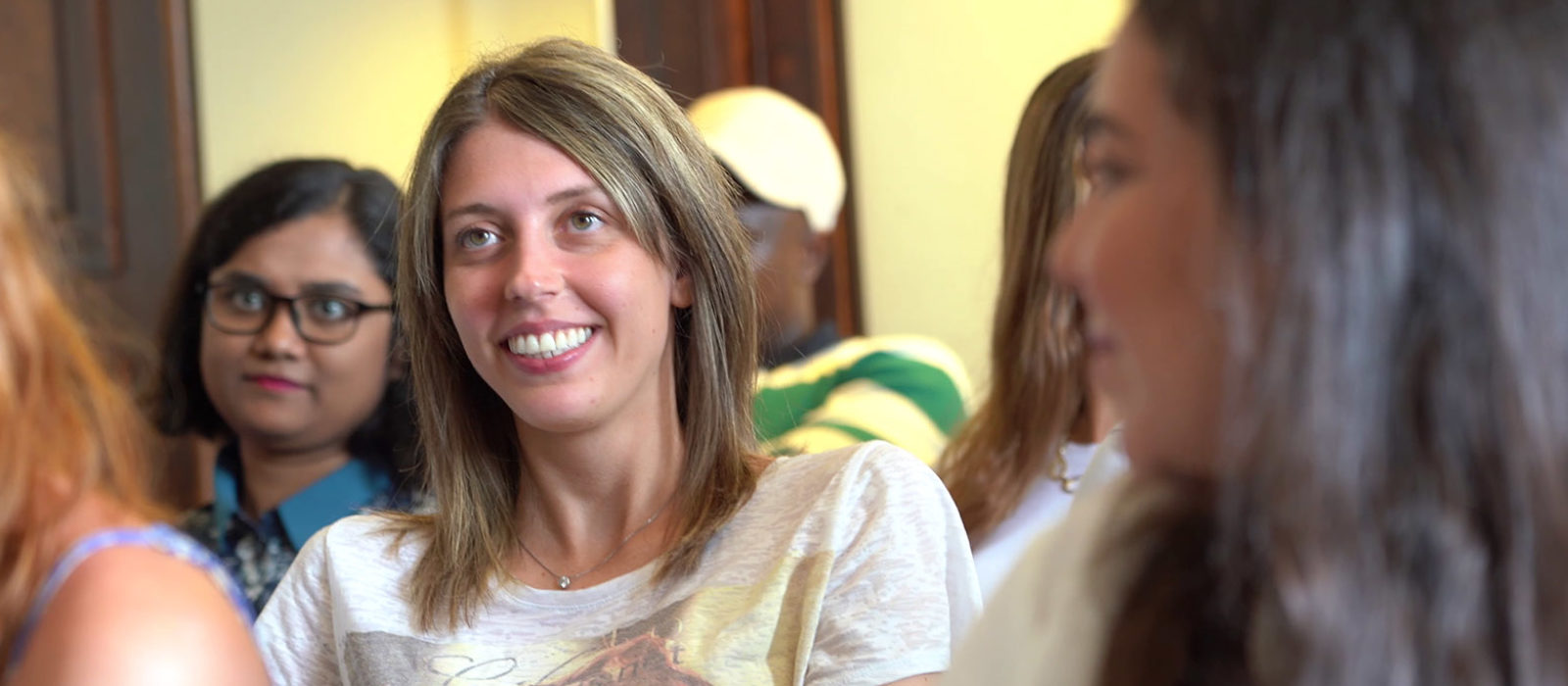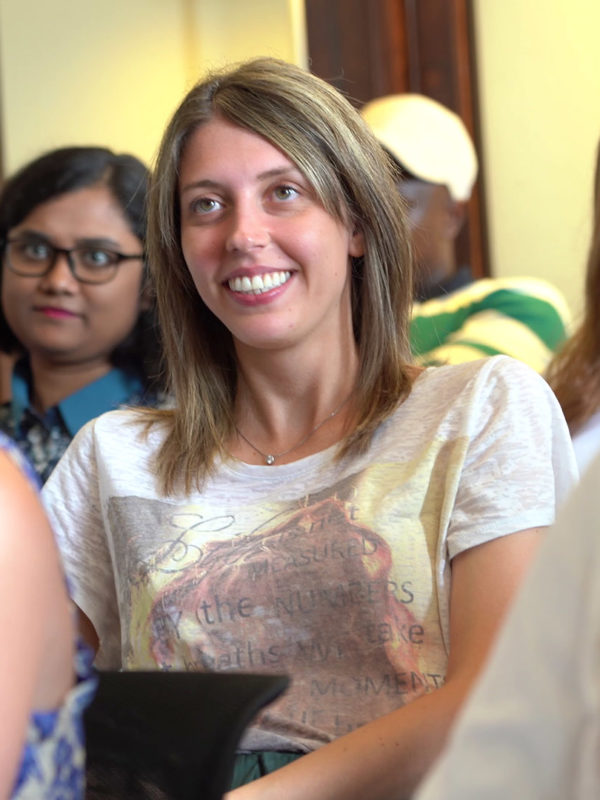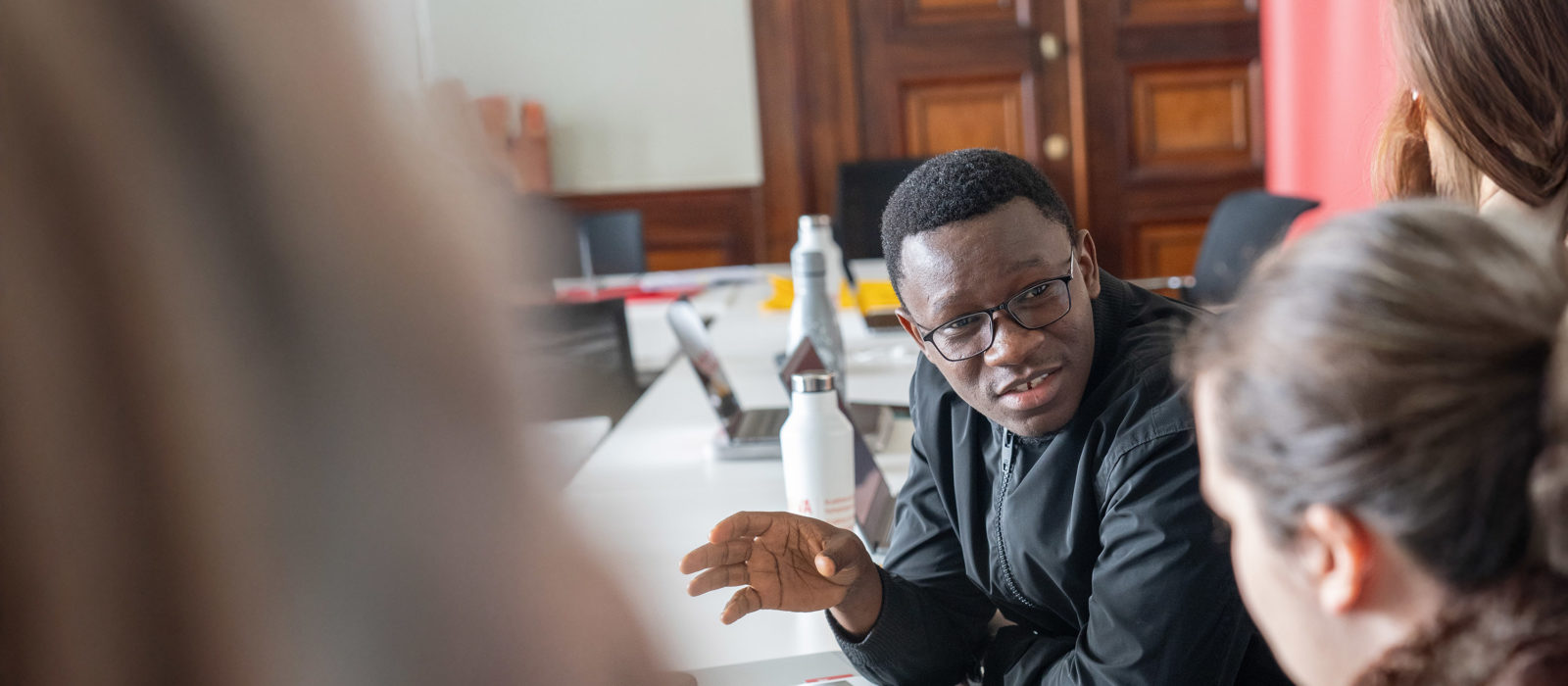Launching in 2026–2027, the LLM–Master of Advanced Studies in International Crimes, Justice and Human Rights builds on two decades of excellence in postgraduate education at the Geneva Academy of IHL and Human Rights. Developed from the former MAS in Transitional Justice, Human Rights and the Rule of Law (offered from 2016 until this academic year), this new programme reflects the Geneva Academy’s continued commitment to evolving with global justice challenges.
It trains legal experts capable of analysing and applying the diverse mechanisms of justice—criminal, reparative, institutional, or hybrid—designed to address international crimes and serious human rights violations.
This one-year, full-time programme (60 ECTS) takes a holistic approach to justice: it situates legal rules and institutions within their political, institutional, and social contexts, encouraging critical reflection and comparative analysis. Combining academic excellence with hands-on experience, it equips students to engage with the realities of international and domestic justice mechanisms, transitional and non-transitional alike.
The LLM-MAS in International Crimes, Justice and Human Rights is a one-year, full-time postgraduate programme (60 ECTS) that offers a comprehensive legal perspective on accountability for international crimes and serious human rights violations, with a particular focus on victims’ rights.
Drawing on more than a decade of experience teaching the MAS in Transitional Justice, Human Rights and the Rule of Law, the programme builds on the Geneva Academy’s long-standing expertise in justice processes, accountability mechanisms, and the legal responses to mass atrocities. It examines the multiple dimensions of justice—international, national, transitional, and victim-centered—and explores how the law operates in contexts marked by conflict, repression, institutional collapse, or political transformation.
Students engage with the relationship between human rights and criminal justice, the participation and protection of victims, and the complex intersections between law, politics, and society in situations of conflict, transition, and atrocity. They acquire a robust understanding of accountability processes and the evolving jurisprudence of international and regional courts, human rights bodies, and hybrid or domestic mechanisms.
Taught by leading academics and experienced practitioners, the programme benefits from Geneva’s unique ecosystem of institutions working on justice, accountability, and human rights—such as the Office of the High Commissioner for Human Rights (OHCHR), UN investigative and fact-finding mechanisms, international NGOs, and specialized accountability initiatives. This setting provides students with unparalleled access to the institutions and experts shaping global practice in the fields of international crimes and human rights protection.
The tuition fee for this programme is CHF 18,000. Information on payment modalities and deadlines is provided to admitted candidates together with the offer of admission. A limited number of scholarships are available each year and awarded on the basis of academic merit and financial need. Scholarships may cover tuition fees, living expenses, or both.
The academic year begins in mid-September and runs until mid-September of the following year:
Autumn semester (September–December):
Core and optional courses, supported by tutorials (in core courses) to strengthen conceptual understanding and prepare for assessments.
Winter (January):
Examination period and short break.
Spring semester (February–June):
Continuation of core courses, combined with mandatory professionalising activities.
Summer (July–August):
Completion of the LLM–MAS Final Paper (3 ECTS).
Graduation:
End of October.
Core Courses (42 ECTS)*
- International Crimes and Criminal Justice – 12 ECTS
- Transitional Justice and the Fight against Impunity – 12 ECTS
- Victims’ Rights and Regional Human Rights Systems – 6 ECTS
- Law and Politics of Transition – 6 ECTS
- Alternative and Community-Based Justice – 6 ECTS
Optional Courses (2 required – 3 ECTS each, offered in the Autumn semester)*
- Children’s Rights and Armed Conflicts
- Decolonisation and its Impact on International Law, Human Rights and International Development
- Displacement and Armed Conflict in International Law
- Identity Claims, Cultural Diversity and Human Rights
- International Cyber Security Law
- Non-State Armed Groups in Armed Conflicts
- Reconciliation and Peacebuilding
- Reparations to Victims in Transitional Justice
- The Law and Politics of International Human Rights Monitoring
- Weapons Law
*Examples from the 2025–2026 academic year. Future offerings may vary.
Professionalising activities form an essential component of the programme. During the spring semester, each student completes one mandatory professionalising activity, choosing among:
- a curricular internship with an international, regional, or national institution active in the field of justice, accountability, or human rights;
- participation in a moot court competition, for a limited number of students selected through an internal process.
These experiences bridge academic study with practice, enabling students to develop the skills, ethical awareness, and professional networks necessary for meaningful engagement in the field of international justice.
Graduates of the MAS in International Crimes, Justice and Human Rights are equipped to work in international criminal courts, transitional justice mechanisms, and human rights institutions, as well as in national systems dealing with accountability, reparation, and the protection of victims.
They pursue careers within:
- International organisations and accountability mechanisms, including OHCHR, UN investigative bodies, the ICC, IOM, and UNIDIR;
- NGOs working on justice, peacebuilding, transitional justice, and victims’ rights;
- Ministries of justice and foreign affairs, and other governmental bodies involved in accountability and human rights;
- Regional and hybrid courts, truth commissions, and human rights bodies;
- Academic and policy institutions focusing on conflict, justice, and human right.
Graduates join a strong and diverse alumni community built over more than a decade, bringing together former students from the Geneva Academy’s long-running MAS in Transitional Justice, Human Rights and the Rule of Law and those of the current programme. This interconnected network spans international organisations, NGOs, governments, and academic institutions worldwide, creating a vibrant community committed to justice, accountability, and human rights.
Admission is open to candidates holding a full degree in law that allows them to sit the bar examination in their country of origin or residence. Candidates with degrees in other disciplines may also be considered if they demonstrate a strong and motivated interest in the programme’s subject matter, supported by relevant professional experience and university-level courses in international law.
Applications must include all required documents, including two recommendation letters (one academic, one professional), written on letterhead and signed.
Applications are reviewed on a rolling basis during the admission period, and entry is highly competitive. Early submission is strongly encouraged.
Before applying please download our Application Guidelines, and refer to to the detailed information on the How to Apply page.
If you have questions about our programmes, please check our Frequently Asked Questions or contact masters-inquiries@geneva-academy.ch


The international environment is one of the unique features that the Academy has. There are so many conferences, chances to attend meetings at the UN. People come from all over the world.
Alumna of the Geneva Academy of IHL and Human Rights

